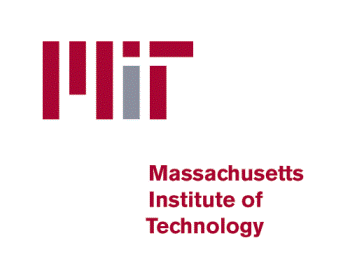High-impact research, Cutting-edge and a beyond compare focus on science and technology have propelled the Massachusetts Institute of Technology to the top of QS World University Rankings this year.
History: It was founded in 1861; MIT has been at the heart of seminal breakthroughs in disciplines for example engineering, physics, computer science and mathematics. Possibly its most famous current faculty member, linguist and political activist Noam Chomsky, has been named among the top ten most cited scholars of the time.
Earlier years ranking:
Harvard topped the QS World University Rankings every year between the years 2004 to 2009, although University of Cambridge was number one in 2010 and 2011.

Faculty:
Strong across the range of indicators, MIT is propelled to the top of the overall table this year by its high-impact research, and the extraordinarily high proportion of academic staff.
With little margins separating institutions at the top of table, its superior performance for research citations and lower student-to-staff percentage push it to the top placed University of the world. MIT has also taken steps to internationalise the student and staff bodies that is an area of comparative weakness in the past.
With undergraduate students around half the size of Cambridge University's, MIT student's advantage from intensive teaching and small class sizes. At postgraduate level it is thoroughly selective, with lesser than 10 percent of applicants admitted.
These high standards are recognized in a poll of 25,000 employers, contributing 10 per cent of the rankings score. MIT graduates are identified as the most sought-after in the world.
The novelist Salman Rushdie is the visiting professor of humanities, and 78 staff and former students have won the Nobel Prize in this, nine of whom are currently teaching at the school.
Admission policy:
Admission is extremely tough. Last year only 1,742 students were presented a place from 17,909 applications. It is financially punishing too as tuition is about $40,000 (£25,000) one year for undergraduates and more for PhD students, other than help is given to low-income families.
Barack Obama's view towards the university:
In October 2009, President Barack Obama walked on stage at the Massachusetts Institute of Technology (MIT) to deliver a speech. After calming rapturous applause, he told crowd that "It has always been a dream of mine to visit the most prestigious school in Cambridge, Massachusetts." The salutation was met with raucous cheers, sooner than Mr Obama silenced them. "Hold on a minute," he said. "Certainly the most prestigious school in this part of Cambridge, Massachusetts."
Address the school's extraordinary record, Mr Obama said: "It is the legacy of daring young men and women who put their talents and efforts into the pursuit of discovery. Willing to take risks on an idea that might fail, but might also change the world."
But Mr Obama's speech also alluded to the other Cambridge seats of learning that have for so long left MIT in the shade. From 2004 to 2010, Harvard topped QS table; UK's Cambridge University took the crown in 2010 and 2011.
And as Danny Byrne of QS said: "If you were to ask someone in the UK to name the most prestigious university in the world, MIT is probably not the first name that would spring to mind. Ask anyone working in science, engineering or technology, however, and the university's triumph in the rankings will come as little surprise."
While the university offers an extensive range of courses from media studies to literature and history, it is in the fields of engineering, science, mathematics and economics it excels.